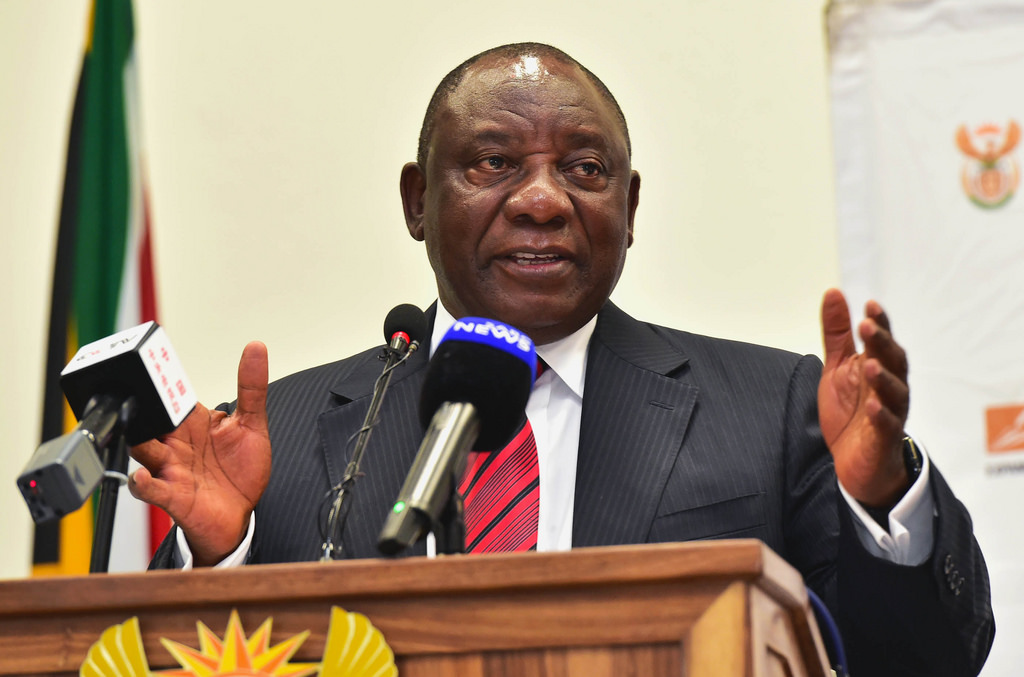“The wheels of change are moving now and they are going to start speeding up. It is an imperative that we rid ourselves of corruption,” South African Deputy President and newly minted ANC president Cyril Ramaphosa recently said in an interview with Bloomberg Television at the World Economic Forum in Davos, Switzerland. “Now we have a clear path to a better future for South Africa”, referring to the much-expected end of President Jacob Zuma’s scandalous time in office, which saw the decline of what was once Africa’s leading nation. How long South Africans will have to wait remains unclear. When asked whether Zuma should step down before the end of his term, Ramaphosa merely responded that “we are managing the transition.”
South Africans are not the only ones hoping to see the end of Zuma as soon as possible. Policy makers in Brazil, Russia, India and China, while careful not to upset the South African president, are worried that continued domestic uncertainty in Pretoria will undermine the country’s capacity to play a constructive role as it takes over the temporary BRICS presidency this year. Indeed, Zuma is now so discredited both at home and abroad that his presence would negatively affect South Africa’s role of host nation, which involves organizing countless inter-ministerial meetings ahead of the presidential summit in late July, one of the most important diplomatic events in the world. That is far more than diplomatic routine: while all decisions in the BRICS grouping are taken unanimously, it is up to the host nation to suggest key issues to be discussed over the course of the year. Simply put, the other BRICS members expect South Africa to articulate concrete ideas and proposals vis-à-vis the future of the BRICS grouping, which is now a pillar of each member country’s foreign policy. That is particularly important given the need to ‘declutter’ the intra-BRICS cooperation: rather than organizing more than one hundred meetings in each BRICS presidency (as was the case in 2016 and 2017), fewer, more focused engagement would help make the grouping’s contributions more tangible and measurable.
That is why the BRICS grouping would benefit enormously if the host of the 10th BRICS Summit, to be held this year in Johannesburg, would be Cyril Ramaphosa (which would require Jacob Zuma to step down or be ousted first). While expectations in Zuma’s likely successor both at home and abroad are probably exaggerated, he will almost certainly not be as bad as President Zuma, allowing South Africa to reemerge as a relevant international actor and promote a constructive debate about the future of BRICS. An engaged and untainted South African president would be good news for the grouping.
The next two years offer a window of opportunity for the BRICS. Last year, the Chinese government organized a dazzling meeting in Xiamen and implicitly sought to integrate the BRICS grouping into an increasingly sinocentric global system. It is now common for Chinese diplomats to mention the complementary nature of BRICS and the Belt and Road Initiative (BRI), yet it remains unclear to the other BRICS members what exactly that means. A dynamic and focused summit in 2018 (hosted by Ramaphosa) and another in 2019 in Brazil (hosted by a freshly minted President) would show that the BRICS grouping does not depend on Chinese ideas and economic growth alone, and that South Africa and Brazil have overcome their respective economic difficulties and are ready to actively promote the debate about the grouping’s future.
Read also:
New Development Banks as Horizontal International Bypasses: Towards a Parallel Order?
The BRICS Leaders Xiamen Declaration: An analysis
China-India border dispute shows why the BRICS grouping matters more than ever









